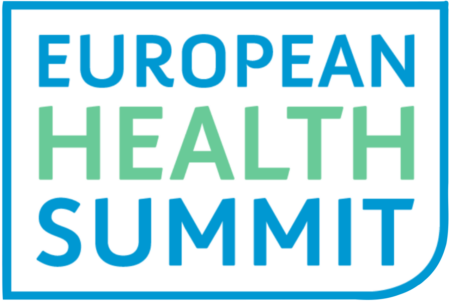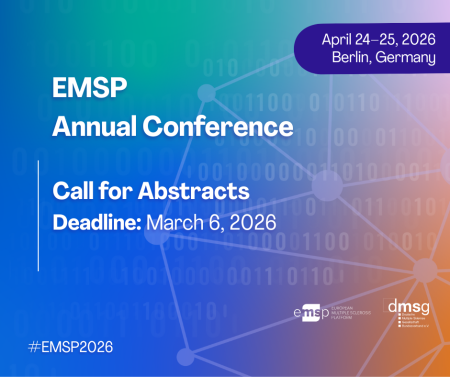
EMSP takes part in the European Health Summit 2023
19.12.2023The European Health Summit is a pan-European high-level platform organised with the idea of strengthening collaboration not just with European institutions, but also with member states.
Supported by Ursula von der Leyen, who opened the first annual summit in 2020, the European Health Summit (EHS) has contributed to the debate on innovation and cross-border patient access to treatments for unmet needs, pandemic preparedness, and European Health Data Space. EHS ambition is to advance on topics such as prevention, mental health and cancer research to foster a resilient, equitable and competitive healthcare system across Europe.
The 4th Edition of the European Health Summit took place at the Egmont Palace on the 7th December 2023, bringing together cross-sectorial stakeholders from the healthcare sector and distinguished speakers from the realms of industry, policymaking, patient organisations, academia, and civil society.
Under the theme of “Agenda 2024- 2029: the Future of Healthcare in Europe”, the Summit delved into the current and future array of challenges and opportunities the European healthcare systems will face during the next legislative cycle of the European Union. Focusing on the three main pillars – digital health, competitiveness and innovation, and sustainable healthcare systems – our esteemed speakers covered the different aspects that need to be tackled to create a resilient European Health Union in which innovation and access are put in the core of the next EU’s political agenda.
This year’s summit highlighted the relevance of prevention, accessibility and affordability of innovative therapies and drugs, competitiveness in the European pharmaceutical industry, and the benefits of incorporating digital health in our healthcare systems, thereby paving the way to sustainable and resilient healthcare systems.
What was in the European Health Summit for our community?
The panel discussion on building a solid infrastructure for the European digital health piqued our interest as the discussion were focused on European health data space (EHDS) highlighting the significance of good quality of data within EHDS for it to be successful. The fact that the primary data are generated from the patient population so the top focus was to have patients involved within EHDS process in a meaningful way and that the current EHDS regulations are not sufficient, so it should be co-created by all stakeholders based on the current requirements and priority.
EHDS will only work if the HCPs and Patients sees value in the data then the quality of those data will improve. The value of the data will only be realised if the emphasis will be on prevention of chronic diseases across Europe.
The discussion also touched on the broader challenges within the healthcare sector, addressing issues such as an aging population, evolving health concerns, and the role of AI in healthcare applications. The panel highlighted the delicate balance required between national and European dimensions in healthcare policies, as well as the hurdles faced by smaller companies, including high access costs and global competition. There were further reflections on having patients and healthcare professionals (HCPs) included within the EHDS network and parliamentary legislative processes.
The conversation concluded with reflections on the importance of inclusivity, representative health data for research, and the transformative potential of AI, emphasising considerations for patient involvement and workforce education.
Another session which drew our attention was the private public partnership to work on the unmet medical need where the conversation emphasised on the importance of collaboration, data sharing, and flexible purchase agreements in the realm of rare diseases research. Additionally, speakers highlighted the necessity for transparent regulatory requirements, incentives for research engagement, and translating research findings into effective policymaking. There is a crucial need for better communication about ongoing efforts and fostering public-private partnerships to streamline the R&D pathway.
Adam Hacker, Director and Global Head Regulatory Affairs, CEPI, said:
“Supporting regulatory network development in other regions should draw on the EU’s model, which provides an effective framework for harmonising cross-border regulations while respecting national sovereignty.”
Lastly, the hot topic within the discussion was about the EU pharmaceutical strategy to foster Europe’s competitiveness on the global scale.
The discussion reflected on the implementation of the Pharma legislation. The MEP represented within the panel highlighted that the major intention behind pharma legislation is to check on the competitiveness as it involves the entire health ecosystem. Also emphasizing that Industry is not the only partner to be engaged within the discussion rather it also involves various authorities in member states.
The Patient representative from EPF highlighted that health is the top citizens’ priority, it’s a fundamental right and the most relevant discussion for the patient community is whether health is accessible and affordable? Emphasising to have right healthcare for the right people, at the right time and at the right price.
The discourse also underscored the importance of informing citizens about quality and a healthy life, recognising challenges and inequalities. Legislation emerged as a critical factor in fostering innovation and ensuring the availability of medicines, especially in the context of upcoming elections. Addressing challenges related to equality in access to medicine, changing trends, and regional disparities within Europe were stressed. The need for patient-centric policies, an enabling environment for competitiveness, and faster regulatory approvals were highlighted, framing health as a fundamental human right that requires strategic political consideration. The conversation concluded with a call to consider measures that genuinely encourage real innovation.
Finally, the summary of the day was articulated as a vision of the Health Union as one of the most substantial legacies to be bequeathed to the next commission. The commitment signified a forward-looking approach, wherein collaborative efforts should be geared towards advancing and unifying health initiatives.
EMSP will be following up on the commitment of European commission and will closely keep an watch on ‘the European Health Union’. We will also advocate to have patients at the center at the European pharmaceutical strategy involving patients to define the ‘unmet medical needs’.
 Your Account
Your Account


